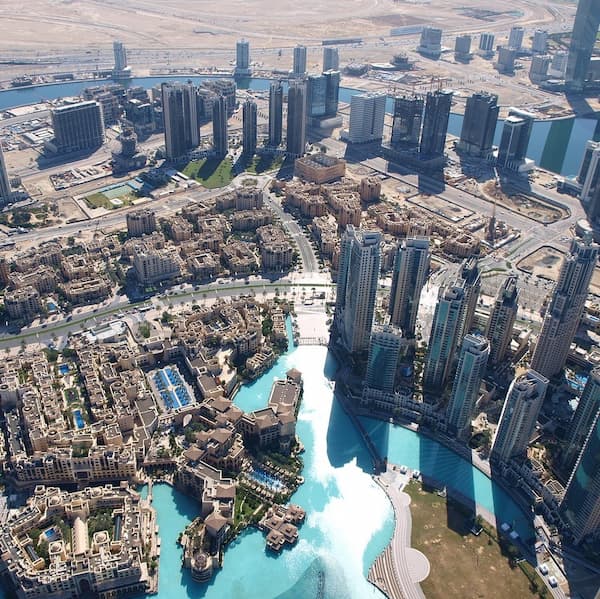Strategy
Pictet Mulls Dubai Booking Centre, Takes Gradualist Growth Stance

A senior Pictet banker tells this news service that Dubai reminds him of New York during the boom of the 1990s, and the cosmopolitan energy and optimism of that decade.
Dubai today radiates the same level of dynamism as a place for a
private banker to work and live as New York City did in the
dotcom era of the 1990s. And yet, many of the wealth holders in
the UAE, such as second- and third-generation family heads, want
the kind of long-term mindset from a bank that differs from the
high-roller Wall Street of decades ago.
Geneva-headquartered Pictet has been making a
long-term commitment to Dubai and the surrounding region, Yves
Bruggisser, equity partner and head of the Middle East zone at
Pictet Wealth Management, told this news service in a recent
call.

Yves Bruggisser
Asked whether the Swiss firm wants to set up a booking centre in
Dubai, Bruggisser said: “It is something we’re considering...but
we have to be sure this is what our clients need and that we have
the right people.”
Pictet has had a representative office in Dubai since 2007. In
recent years, the bank has added to its Middle East
teams with one to two bankers a year.
Bruggisser said the bank isn’t interested in the
M&A route as a faster approach, he said. In more than two
centuries of its existence – founded in 1805 – Pictet hasn’t
bought another bank or firm, and there is no plan to change that
approach. Today, a total of 50 staff, including investment
specialists, cover the Middle East region from Dubai,
Geneva, Zurich and London.
Like a number of other banks, Pictet has been attracted by the
rapid rise in Dubai’s prosperity, and its status as a financial
hub straddling European and Asian time-zones. The bank has had
clients in the region since the 1980s.
Dubai’s move over a year ago to create a centre in the DIFC
for family offices is another important addition to the wealth
toolkit. (See
more here.)
So far, Pictet’s approach to growth is to be steady and focus on
employing high-calibre people who can work with clients’ often
complex needs, Bruggisser said. “We have 5 per cent growth in the
number of people in the Middle East,” he said. “Most of the
families here are second or even third generation.” Clients don’t
want a high turnover of the bankers they deal with, he
continued. (The bank doesn’t disclose the share of revenues that
UAE accounts for in all Pictet’s business. See its 2023
results.)
While he did not directly comment on the matter, Bruggisser knows
that clients, reconsidering their banking menus after the UBS
takeover of Credit Suisse last year – and problems with other
lenders – are in the mood to consider fresh options. A bank such
as Pictet, with its history, partnership structure and
independence, clearly thinks it is in a good position to push
itself forward.
While the UAE has tightened up local controls and removed itself
from the FATF “grey
list” – a big plus now for the jurisdiction – it is
still known as a place where Russians have congregated to avoid
sanctions after the invasion of Ukraine. Private banks have had
to be careful.
“We do not accept clients who are based in Russia, whose main
source of income is from Russia or, of course, who have been
sanctioned. Needless to say that we always act in compliance with
applicable laws, regulations and sanctions,” Bruggisser said,
when asked about the matter.
Credibility
“We have the credibility of being a ninth-generation firm,” he
said, saying that the bank’s added-value proposition in areas
such as wealth planning, family governance, work on NextGen
transfer issues, gives it an edge.
“They [clients] like private assets; they like discretionary
solutions for the ultra-high net worths, they like unique
investments and they like access to opportunities in other
investments,” Bruggisser continued.
Much of the wealth market in the Gulf is international, with a
significant proportion of expats in the region.
“Dubai reminds me of New York in the 1990s. In a single day, you
would meet people from, say, 20 nationalities, and get to work
with every nationality,” he said.
This news service continues to track the firms setting up in Dubai and other Gulf jurisdictions. See this interview here, for example, with IQ-EQ about its regional strategy, or that of Mauritius Commercial Bank (MCB), here.
(Separately, and a few days after International Women's Day, click on the following link about recent research this publication brought out alongside First Abu Dhabi Bank on women's issues in the Middle East and Africa wealth sector.)